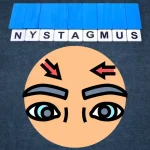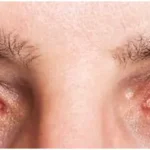One of the most uncomfortable sensations is the feeling of pressure in eyes and headache. This sensation can be quite distressing and may interfere with daily activities. Understanding what causes pressure behind the eyes, its symptoms, and treatment options can help alleviate this issue and provide relief.
This blog will be about exploring causes of eye pressure pain, the common symptoms associated with it, and effective treatment methods. By gaining a better understanding of causes of eye pressure pain, individuals experiencing this discomfort can seek appropriate care and find relief.
Understanding Pressure Behind the Eyes
Before delving into the causes and treatment options, it is important to have a clear understanding of what the feeling of pressure in eyes and headache actually means. It refers to the sensation of tightness or discomfort felt in the area around the eyes. This sensation can vary in intensity and may be accompanied by other symptoms such as headache, eye pain, or blurred vision.
The answer to what causes pressure behind the eyes can be a variety of factors, including eye conditions, sinus infections, migraines, and other underlying health conditions. Identifying the underlying causes of eye pressure pain is crucial in order to determine the appropriate treatment approach.
What Causes Eye Pressure & Pain?
Pressure behind the eyes can be attributed to several potential causes. Some of the common causes of eye pressure pain include:
1. Glaucoma: Glaucoma is an eye condition characterized by increased pressure within the eye, which can lead to optic nerve damage and vision loss if left untreated.
2. Sinus Infections: Sinus infections can cause inflammation and congestion in the sinuses, leading to pressure and pain around the eyes.
3. Migraines and Cluster Headaches: These types of headaches can be one of the significant causes of eye pressure pain.
4. Graves’ Disease: This autoimmune disorder affects the thyroid gland and can cause eye symptoms such as bulging eyes, eye pain, and pressure.
5. Optic Neuritis: Optic neuritis is inflammation of the optic nerve, which can result in eye pain and pressure.
6. Injuries to the Eye: Trauma or injuries to the eye can cause pain and pressure.
7. Contact Lens Overuse: Wearing contact lenses for extended periods or improper lens care can lead to eye irritation and discomfort.
8. Dry Eye Syndrome: Insufficient tear production or poor tear quality can cause dryness and discomfort, leading to pressure behind the eyes. You can also read on symptoms of dry eye syndrome.
Symptoms of Pressure Behind the Eyes
Pressure behind the eyes can be accompanied by several symptoms that may vary depending on the underlying causes of eye pressure pain. Some common symptoms include:
- Eye pain or discomfort
- Headaches
- Blurred vision
- Sensitivity to light
- Redness or swelling around the eyes
- Watery eyes
Diagnosis and Treatment for Pressure Behind the Eyes
If you are experiencing pressure behind the eyes, it is crucial to seek proper diagnosis from a healthcare professional. They will perform a thorough examination and may recommend additional tests to identify the underlying causes of eye pressure pain.
The treatment for the feeling of pressure in eyes and headache will depend on the specific cause. It may include medication to relieve symptoms, lifestyle changes, or in some cases, surgical intervention.
It is important to follow the treatment plan prescribed by your healthcare provider and attend regular follow-up appointments to monitor your condition and make any necessary adjustments to your treatment.
Preventive Measures and Lifestyle Changes
In addition to medical treatment, there are several preventive measures and lifestyle changes that can help alleviate pressure behind the eyes. These include:
- Maintaining good eye hygiene and proper contact lens care
- Taking regular breaks from screens and practicing the 20-20-20 rule (every 20 minutes, look at something 20 feet away for 20 seconds)
- Managing stress levels through eye relaxation techniques
- Avoiding triggers such as bright lights or certain foods that may contribute to migraines
- Using artificial tears or lubricating eye drops to alleviate dryness
When to See a Doctor
While occasional mild pressure behind the eyes may not be a cause for concern, it is important to consult a healthcare professional if you experience persistent or severe symptoms. You should seek medical attention if:
- The discomfort becomes increasingly worse
- You have persistent headaches or migraines
- You experience changes in vision
- The pressure behind the eyes is accompanied by other concerning symptoms
A healthcare professional will be able to provide a proper diagnosis and recommend appropriate treatment options based on your specific condition.
Why Centre For Sight?
At the Centre for Sight, we understand the importance of comprehensive eye care and the impact that eye conditions can have on one’s quality of life. Our team of experienced ophthalmologists and eye care professionals is dedicated to providing the highest standard of care and personalized treatment plans for individuals experiencing eye pressure headache or any other eye-related concerns.
With state-of-the-art facilities and advanced diagnostic tools, we strive to accurately diagnose the underlying cause of your symptoms and offer effective treatment options. Our patient-centric approach ensures that each individual receives the attention, care, and support they need throughout their eye care journey.
Conclusion
Pressure behind the eyes can be a distressing and uncomfortable sensation. However, with a proper understanding of the cause of eye pain and pressure, its symptoms, and treatment options, individuals experiencing it can find relief and improve their quality of life.
FAQs
What causes a feeling of pressure in your eyes?
Pressure behind the eyes can be caused by various factors such as eye conditions, sinus infections, migraines, and other underlying health conditions.
How do you relieve pressure pain in your eyes?
The treatment for pressure pain in the eyes depends on the underlying cause. It may include medication, lifestyle changes, or surgical intervention.
Can stress cause high eye pressure?
Stress can contribute to elevated eye pressure in some individuals, but it is not the sole cause. Other factors such as genetics and underlying eye conditions play a role.
Can eye pressure cause a headache?
Yes, increased eye pressure can cause headaches, particularly in cases of conditions like glaucoma or sinus infections.
Should I see a doctor for pressure behind my eyes?
It is advisable to consult a healthcare professional if you experience persistent or severe pressure behind the eyes, or if it is accompanied by other concerning symptoms.
Can dehydration cause pressure behind the eyes?
Dehydration can contribute to dryness and discomfort, which may manifest as pressure behind the eyes. Staying hydrated is important for overall eye health.





